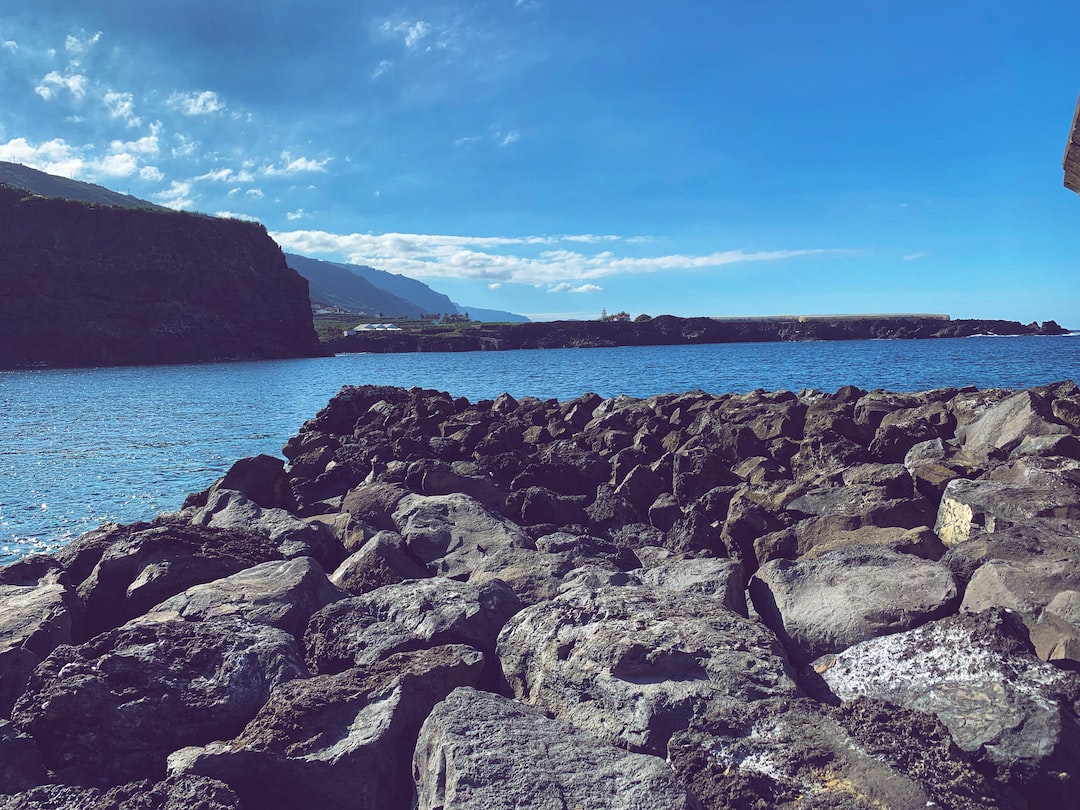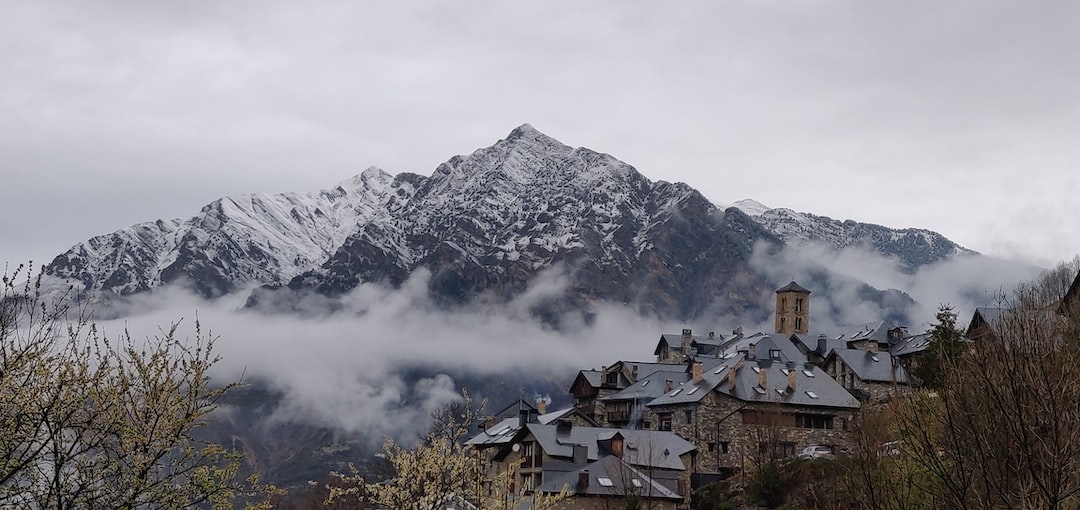Alright fam, let’s dive deep into a topic that’s not only crucial but super timely. We’re talking about something that quietly affects our daily lives, our future, and the future of all the ones who come after us—resource allocation. Sounds old-school, right? Like something straight outta an Econ 101 class where you skim the textbook and blackout halfway through? But nah, we’re taking this conversation to a whole new level. Buckle up, because we’re about to navigate the intersection of needs, sustainability, and the ethical dilemmas that come with both. 🌍✨
The Weight of the World: Why Resource Allocation Matters
So picture this: You’re about to throw a major bash. You have a whole squad to feed, a ton of activities on the agenda, and you’re hyped. But when you finally look around to scope what you have, the reality sinks in. You’ve only got a couple of pizzas, one family-size soda, and like six paper plates. Time to panic, right? Or, time to plan?
Now, scale that situation to a global level, but swap out paper plates for the Earth’s resources—food, water, energy, and even air. Feeling the pressure yet? That’s what we’re diving into. Resource allocation is all about figuring out what goes where, who gets what, and how to do all that without running out. Think of it as playing a never-ending game of Tetris, but instead of blocks, you’re managing the survival of humanity.
And let’s be real—Gen-Z is already kind of obsessed with sustainability. From watching docuseries on climate disasters (shoutout to Our Planet) to buying ethically-sourced merch, we’re more woke to this issue than any other generation before us. The burning question remains: How do we balance our needs with what the planet can actually offer? Can we keep up our vibes without wreaking havoc on Earth’s limited stash of resources?
Supply and Demand: The Ethics Behind Resource Allocation
Alright, so this is where things start to get heated, and not just because of global warming. Resources like clean water, food, and energy are finite. In an ideal world, we’d magically have enough to go around for everyone—but we don’t live in an ideal world, do we? Some countries are balling with an abundance of stuff, while others are straight-up struggling to make ends meet. That disparity is a core moral issue.
Enter resource allocation, a system that literally decides who gets what and how much of it. When you dig deeper, it becomes clear that it isn’t just about efficiency or cutting costs. It’s about human lives. When resources go scarce, the first victims are always the marginalized—the people who can least afford to lose access to those resources. The ethics here are massive. Like, it becomes a question of who we value more. Are we going to prioritize rich corporations who hoard resources, or are we going to have a more equitable system?
Here’s a wake-up call: It’s not just corporations that hog resources; it can be entire countries too. Ever heard of the "resource curse?" It basically refers to countries rich in natural resources often lagging in other developmental indicators. Think poverty, inequality, and even civil wars. When nations prioritize short-term gains over long-term sustainability, they often end up running themselves into the ground. This takes us to a point where allocation becomes much more than just an economic decision—it’s a moral one.
We’re talking about choosing who thrives and who, well, doesn’t. Countries that can flex with economic and political muscle often get first dibs on resources, leaving the rest to fend for scraps. But should that really be a thing? Resource allocation must come with a strong ethical base, one where fairness trumps greed, every time.
Sustainability vs. Our Hungry World
But here’s the plot twist, fam. Even if we couldn’t care less about fairness (which, let’s face it, we all lowkey do), we still have to think about how long our current lifestyle can actually last. Spoiler: The answer’s not looking too great, fam.
Our planet isn’t on infinite mode, and resources are depleting faster than your phone battery during an all-nighter. The more we take without giving back, the closer we get to that ‘game over’ screen. It’s wild when you really think about it—each time you crank up the AC, order takeout, or even scroll endlessly on TikTok, you’re using up resources that the Earth might not be able to replace.
Here’s the tea: consuming resources at the rate we are today isn’t just unsustainable, it’s wrecking the planet’s future. For instance, our seemingly insatiable demand for meat isn’t just about satisfying cravings. The meat industry is hardcore demanding, using up vast amounts of land, water, and energy, while contributing to greenhouse gas emissions. The more steak we chow down on now, the less habitable Earth becomes tomorrow. Big yikes.
So, how do we strike a balance between living our best lives and, well, preserving the planet? It’s not as simple as cutting out meat or going vegan—though that’s a solid start. We need to begin thinking bigger, making decisions that emphasize sustainability. Doing small things like opting for reusable items, cutting down on energy consumption, or even supporting companies that prioritize green supply chains makes waves.
Sustainable Development Goals: The Cheat Sheet
You’ve probably heard about the UN’s Sustainable Development Goals (SDGs), right? It’s essentially like the Earth’s 15-year plan dropped back in 2015. This cheat sheet provides 17 goals that focus on confronting all sorts of global problems, ranging from poverty to clean energy to climate action. But as bomb as this blueprint sounds, the onus isn’t just on governments and big corporations; the responsibility is also on, well, all of us.
If we take “Goal 7: Affordable and Clean Energy,” for example, it’s not just about countries switching to renewables but even individuals living more energy-efficiently. Translation: turning off lights, using energy-saving appliances, and reducing unnecessary consumption. At the end of the day, it’s about habits. It’s about pressing ‘play’ on being a responsible global citizen, not just liking environmental posts on Instagram and calling it a day.
The SDGs embody what balanced resource allocation could look like, tbh. Not just focusing on economic growth (because capitalism isn’t a personality), but emphasizing a more balanced approach where economic, social, and environmental priorities exist in harmony. The right ethical choices need to be baked into our daily lives, ensuring we’re meeting present needs without compromising future generations. That’s where the sustainable crowd comes in clutch and why this stuff matters literally every day.
The Exploitation Debate: Workers vs. Corporations
Here’s where stuff gets murky, real fast. We all know labor exploitation ain’t new—it’s been a tragic part of history, and it still exists today in too many sectors. But let’s zoom out for a second. What’s driving that exploitation? Answer: the relentless drive for money (surprise, surprise) and the uneven allocation of resources around the globe. The issue isn’t just about treating workers better; it’s about challenging the systems that create this mess in the first place.
Take fast fashion, for example. We buy cheap clothes, and retailers need to produce them fast and low-cost to meet that insatiable demand. But behind those racks are underpaid workers busting their backs in factories, mostly in developing countries, with minimal labor protections. The brands make billions, and the cycle of exploitation gets reinforced. It’s straight-up wild how we’re all indirectly connected to these toxic practices just by shopping for a double-tap-worthy outfit.
So how do we even start fixing this? You got to go big. Brands and corporations need to shift focus from pure profit to sustainable, ethical practices that benefit everyone along the supply chain. At the same time, we as consumers need to be woke to the impact of our choices. Opting for ethically made products, calling out exploitative practices, and prioritizing fairness over price—these are ways to turn the tables.
And let’s not get it twisted; change doesn’t happen overnight. We’re talking long-term commitment here. But what’s the alternative? Continuing down this road where everything and everyone is expendable until nothing’s left? Nah. The exploitation debate in resource allocation amplifies the need for drastic, systemic changes to create a more equitable world.
Resource Wars: When Allocation Gets Violent
Alright, buckle up, because here’s the dark side of resource allocation. If you thought the battle over the last slice of pizza was intense, you haven’t seen anything yet. Wars, conflicts, and straight-up violence over resources are as real as it gets. It’s practically a historical tradition at this point, from ancient wars over fertile land to modern-day disputes over oil. And it’s not looking like it’s slowing down anytime soon.
Nations have gone to war over resources for ages, and it’s still happening today. We’ve seen oil-rich regions become hotspots for conflict (cough Middle East), with power players vying for control over what lies beneath the soil. But it doesn’t even stop at oil. Water is the next big thing. Freshwater scarcity is gearing up to be one of the future’s defining challenges, putting countries at odds as they scramble to ensure their people’s survival. The scariest part? These resource disputes often drag ordinary people into the crossfire.
The crazy part is when you realize that resource wars aren’t just fought with tanks and guns anymore. Now, it’s about cyberattacks, economic sabotage, and even environmental manipulation. The stakes are high, and the rules are blurred. The more scarce resources become, the more dramatic and global the conflicts over them get. It’s sort of like a never-ending episode of Game of Thrones, except IRL and risking global destruction.
Now’s the time to start asking yourself: Is this really how we want to go down? Are nations genuinely willing to destroy each other over something that could be managed much more peacefully and equitably? It comes back to ethical resource allocation. The more unfairly resources are distributed, the more conflict brews. This grim outlook could be changed with smarter, more ethical policies focused on cooperation over competition. After all, the ultimate flex is global peace, right?
Urgency Mode: Climate Change and Resource Allocation
We can’t talk about resource allocation without diving into the single, most pressing issue of our time—climate change. The Earth’s thermostat is spiraling, and it’s putting a serious strain on how we allocate resources. But FYI, this isn’t some future problem that’s going to pop up years down the road. We’re already feeling the burn right now. Wildfires, floods, hurricanes—Mother Nature’s not just knocking; she’s pounding on the door demanding change.
Here’s a trippy thought: Climate change is essentially a giant, planet-wide resource theft. It’s altering ecosystems, shifting agriculture patterns, and drying up water supplies. Populations that once thrived in particular regions are now struggling to survive in them. They’re being plundered of the resources they’ve relied on for generations, and it’s disproportionately hitting the Global South. The richest of the rich can always bounce back, but for many communities, there’s no going back to "normal."
Straight up, climate change will be the defining factor in determining how resources get allocated in the future. Imagine the chaos when countries—mostly in the Global South—already struggling with existing issues suddenly find their water supplies wiped out or their homes underwater? We’re already seeing the seeds of massive migration crises, where populations move en masse seeking more livable conditions. This displacement creates new complexities in resource allocation because more people in one area means higher demand, which might lead to scarcity and, ultimately, conflict. It’s a gnarly cycle.
The silver lining? We still can pivot and chill out this situation by going all-in on sustainability, renewable energy, regenerative agriculture, and holistic environmental policies. Governments aren’t going to make these shifts on their own. That’s why us, the Gen-Z squad, need to stay active in movements pushing for environmental justice, climate action, and new green technologies. It’s going to take everybody working together to even have a shot at solving this puzzle. And the stakes? Yeah, they couldn’t be higher.
Ethical Tech and Resource Allocation: The Power Play
Alright, let’s be real for a sec. There’s no way we can talk about the future of resource allocation without giving a shout-out to tech. Like, duh. But seriously, ethical tech is standing there like a hidden ace in the deck of options when it comes to balancing needs and maintaining sustainability. From AI to blockchain to renewable energy innovations, there’s massive potential to use tech as a tool for good instead of just mindlessly scrolling through endless TikToks.
Let’s peep into renewable energy first. Solar, wind, and hydro are already flipping the script on how we generate electricity. But it’s not just about abundant sunshine or desert winds doing their thing. The ethics kick in when you start thinking about where and who benefits from this tech. If we can make renewable energy accessible for everyone, including marginalized communities, we’re not just slashing carbon emissions; we’re also leveling the playing field. This means more equitable resource allocation, yo.
Then there’s AI—yeah, I know skynet vibes—but bear with me. AI can predict crop yields, optimize water usage, and even streamline energy grids to ensure that resources go farther. Plus, when partnered with IoT (Internet of Things), we’re talking about a smart, connected world where waste gets minimized, and everyone gets the resources they need without over-consuming. The ethical issue isn’t about whether to use tech or not—it’s how we use it and who benefits. The goal should be to ensure that tech helps everybody, not just the tech giants.
Let’s also sip some tea on blockchain for a sec. It’s more than just cryptocurrency hype; it’s about transparency and fair distribution of resources. Imagine a world where resource allocation happens via decentralized networks that everyone can access and verify. Land ownership disputes? Gone. Unfair trade practices? No more. Blockchain could cut through the red tape and allow more direct, ethical management of resources. But of course, if this tech gets monopolized by corporate giants, we’re back to square one, so we need to keep it ethical.
The Consumer’s Dilemma: Wants vs. Needs
Here’s where it gets real on an individual level. Ever caught yourself binge-watching a minimalist home tour on YouTube, only to immediately snag a bunch of stuff online you really don’t need? Yeah, we’ve all been there. We live in a culture that constantly blurs the lines between wants and needs. That’s all well and good, but if you’re serious about resource allocation and sustainability, you gotta confront that beast within.
It’s not news that consumerism drives resource depletion. The more we buy, the more we pull from finite resources, whether it’s materials for your newly-purchased gadget or the water that went into growing your avocado toast. Every product has a footprint, and each adds to the cumulative strain on Earth’s resources. What’s wild is that most of what we buy falls right into that “want” category—it’s not essential. Capitalism banks on it; it thrives on making us feel like we need more when we really don’t. The ethical question is, how do we dial it back?
This isn’t about guilting anyone for enjoying life, but let’s get real about what’s necessary and what’s just dressing it up. There’s power in conscious consumption. When you start to focus on buying only what you truly need, it’s like a weight lifted off your shoulders—lighter on the planet, lighter on your wallet. Plus, it makes the stuff you do purchase feel more valued because it was a calculated decision, not an impulse. It’s a win-win, really.
And look, it’s not just about what we buy, but how we buy. Ethical consumption isn’t just a trend; it’s a responsibility. Choosing products that are sustainably produced, cruelty-free, and don’t exploit workers is a form of resource allocation in itself. You’re literally deciding who gets your money and whether it supports ethical practices or not. Your choices matter, that purchase you’re contemplating? It’s not just another add-to-cart; it could be a vote for a better world.
The Social Justice Angle: Why Fair Allocation is a Human Right
Now, let’s stir the pot a bit, because resource allocation isn’t just economics or environmentalism. It’s about social justice. When resources are allocated unfairly, it’s not just a matter of inefficiency or bad planning—it’s a violation of human rights. Let that sink in for a sec.
When we talk about access to clean water, food, shelter, and healthcare, it’s not just ‘nice to have’ stuff. These are fundamental human rights. That’s why the allocation of resources needs to be viewed through more than just an economic lens—it’s inherently a moral issue. When communities, especially marginalized ones, don’t get fair access to resources, we’re dealing with institutional attitudes that go way back. Global inequality isn’t an accident; it’s designed. And dismantling that system starts with reallocating resources more equitably.
This isn’t just an issue for the Global South—there are communities in so-called ‘developed’ nations that live in what are basically resource deserts. They lack affordable healthcare, access to fresh produce, or even clean, lead-free water. The struggle for fair resource allocation is as much about advocating for local communities as it is about global activism. It’s all interconnected, and until we recognize resource allocation as a human right issue, inequality is going to ride on, unchecked.
To bring it home, think of it this way—every time you use your voice to advocate for better resource distribution, you’re not just making noise. You’re amplifying the underlying moral issues tied to these practices, shining a light on communities that need it the most, and pushing for the systemic change we desperately need. When we talk about social justice moving forward, resource allocation should be right at the center of that conversation.
Is There Hope? The Role of Activism and Policy
Now, before you think we’re all just waiting for the planet to implode, here’s a plot twist: Activism. Yep, activism and policy can actually make a difference. And not just the "I’m posting a black square for awareness" kind of activism, but the real, gritty, down-in-the-trenches type where people rally to steer governmental and corporate policies in a direction that balances needs with sustainability. We’ve seen it work, and if anything’s gonna tip the scale, it’s this.
Remember #FridaysForFuture? A whole generation got up, walked out of schools, and called out governments for dragging their feet on climate action. The stunning part? It worked. Policies shifted, and climate action took the main stage in political discourse. Yeah, success stories like these prove that activism isn’t just shouting into the void. The key is to keep the momentum going. We shouldn’t be slowing down but turning up the heat.
But activism is only one side of the coin; policy is where long-lasting change happens. That’s where allies in government who ‘get it’ come in clutch. We need leaders who don’t just pay lip service but who are willing to enact policies that ensure resources are allocated fairly and sustainably, balancing economic growth, environmental protection, and social justice. It’s about pushing for laws and regulations that hold big corporations accountable while making sure that the public doesn’t get left behind.
To flip the script on resource allocation, we also need those same activists and policy-makers to come together, building new systems that challenge the old ways. Whether it’s advocating for digital currency transparency, fighting for the Green New Deal, or even starting local community-supported agriculture projects—every little bit counts. Policy gives activism a solid ground to stand on, and activism keeps policy accountable. It’s a two-way street, and the future depends on us walking it.
What’s Next? Taking Personal Responsibility
So where do we go from here? We’re at a crossroads, and let’s be honest—it’s easy to feel helpless in the face of something this massive. But don’t get it twisted, personal responsibility is a game-changer. Now’s the time to take all those thoughts and goals and turn them into action. Start with your choices—consume less, and when you do consume, do it smarter. Advocate for policies that align with sustainable development, and keep educating yourself and others on why this stuff matters.
Yeah, I know, you’re probably tired of hearing how “every little bit helps,” but it’s true. All the individual efforts, added up, create the tipping point. Realize that your choices, your voice, your influence can’t just change a thing here or there—they can change everything. So let’s wrap this up with some FAQs. Feel free to share this with your whole squad, because the more woke we all get about resource allocation and sustainability, the better chance we stand to flip the script. 💪🌱
FAQs: ‘Cause You Know You Have Questions
1. Why does resource allocation matter so much?
Resource allocation is about making sure everyone gets a fair slice of the pie. Without it, we risk massive disparities and unsustainable practices that can legit doom the planet. It’s more than just an economic tool—it’s about human rights, social justice, and ensuring a future where Earth’s bounty isn’t just a memory.
2. How can Gen-Z make a difference in resource allocation?
Hey, Gen-Z is already killing it in the activism game. Keep pushing for sustainable practices, reducing your footprint, advocating for policies that promote equitable resource distribution, and educating others. You’re not just the future leaders—you’re the current changemakers.
3. What’s the link between resource allocation and climate change?
Climate change alters ecosystems, messes with agriculture, and dries up vital resources like freshwater, making their fair distribution even more critical. Poor resource allocation can trigger conflicts, migrations, and further environmental degradation. It’s all super interconnected, fam.
4. How can we balance sustainability with our daily needs?
Living sustainably doesn’t mean giving up everything fun. It’s about making smarter choices. Reduce waste, consume less, choose eco-friendly products, and support companies with ethically sound supply chains. Small actions add up to big changes when everyone’s in it together.
5. Is technology a villain or a hero in resource allocation?
It’s a bit of both, to be honest. Tech like AI and blockchain can radically improve resource distribution if used ethically. But if it’s controlled by a few greedy hands, it could go south real fast. The key is keeping tech transparent and accessible for everyone.
6. How is resource allocation tied to social justice?
Resource allocation touches every facet of life. When resources are distributed inequally, marginalized communities suffer the most. Ensuring a fair resource allocation system is fundamental to achieving social justice and dismantling cycles of poverty and inequality.
7. Are there any success stories in resource allocation we can learn from?
Absolutely. The adoption of renewable energy in countries like Denmark has reduced dependency on fossil fuels and made energy more accessible. And initiatives like community gardens in urban areas have improved local food distribution and created more resilient communities. There’s hope—we just have to act on it, globally and locally.
Sources:
- United Nations. "Sustainable Development Goals". 2015.
- FAO. "Global Warming and Agriculture."
- Our Planet (Documentary Series). Narrated by David Attenborough, 2019.
- M. C. Leighton. "The ‘Resource War’ Concept: A Theoretical Overview". 2000.
- FridaysForFuture.org. "Greta Thunberg and the Global Climate Strike Movement". 2019.
- World Resources Institute. "Water Stress by Country". 2020.




